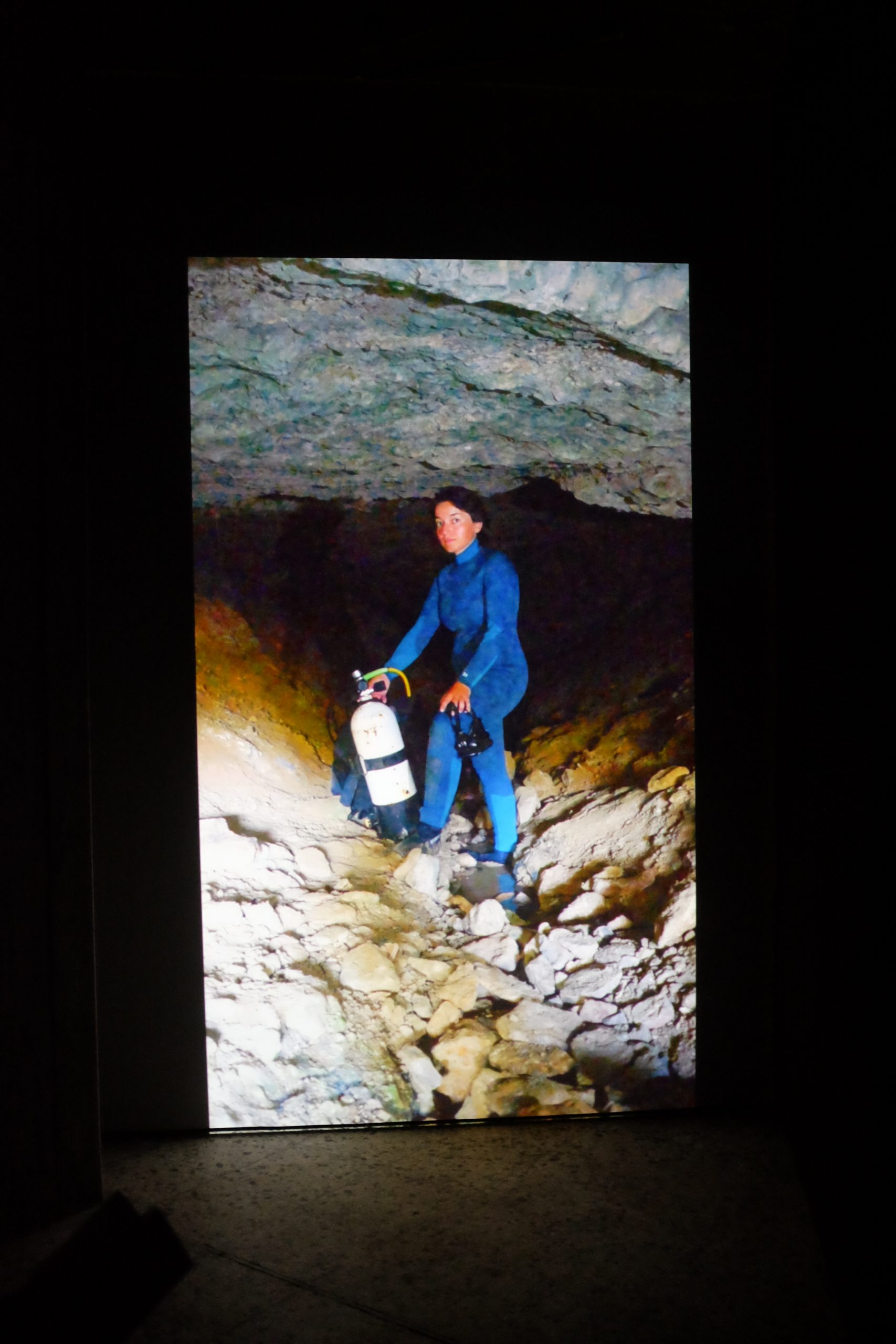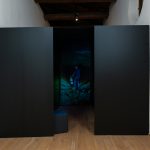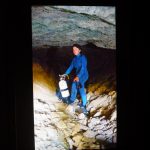From the Belly of the Worms is a sound and video installation by two sisters, Judith and Miriam Gatt, a maritime archaeologist and an artist. The work aims
to deconstruct the archaeological gaze and to think about how the sea can help us understand the different ways of knowing and recollecting our histories. The installation tells the story of a maritime archaeologist that is swallowed by a sea creature named Teredo Navalis. Teredo being one of the main reasons for which archaeological evidence does not survive in the sea, becomes an enigma sustaining the constituent character of history. A self-reflection untangles where the archaeologist becomes conflicted with her own career. Starting to consider the narratives that have been overseen due to the lack of material evidence and the processes of disintegration, she questions her share of responsibility in the construction of the museum through which dominant histories prevail and others are erased. The installation consists of a soundscape- narration which unfolds an inner-monologue of the archaeologist composed by Kyriakos Costa, and a video projection.
In maritime archaeology, most definitions of a shipwreck dismiss or neglect human loss. A shipwreck for an archaeologist is a treasure trove, a source of information, a time capsule where artefacts in excellent conditions are discovered and the study of ancient commerce, naval architecture, and ancient navigation is made possible. For the researcher the idea of tragedy and death is barely of any interest. Some shipwrecks, for example those transporting slaves in antiquity, remain unlisted in the archaeological record; they are simply assigned to the category of invisible shipwrecks without the possibility of further discussion since no material record is preserved. Evidently, the criteria upon which a shipwreck is deemed to be significant and the ways it is studied reflect a materialistic and capitalistic approach in shipwreck archaeology that ultimately fails to connect with the more sensitive and humane aspects of such sites. All shipwrecks sink equally to become part of the sea’s ever-flowing memory. It is the ravages of time and the deontology of archaeology that select certain narratives to prevail over others; subsequently shaping our understanding of Mediterranean history.
As generators of information for public and academic consumption, archeologists need to re-examine the methodologies employed in their discipline and bring about a transformative maritime shipwreck archaeology that can challenge the field and critically contend with the legacy of their discipline. Decisions on “what” and “where” to study, excavate, and document, are not just abstract implications but also political determinations. From the Belly of the Worms aims to contemplate on how the sea can help us understand the different ways of knowing and recollecting our histories, to bring to light narratives that have been overseen, attempt to overcome selective memory and understand the politics of remembering.



